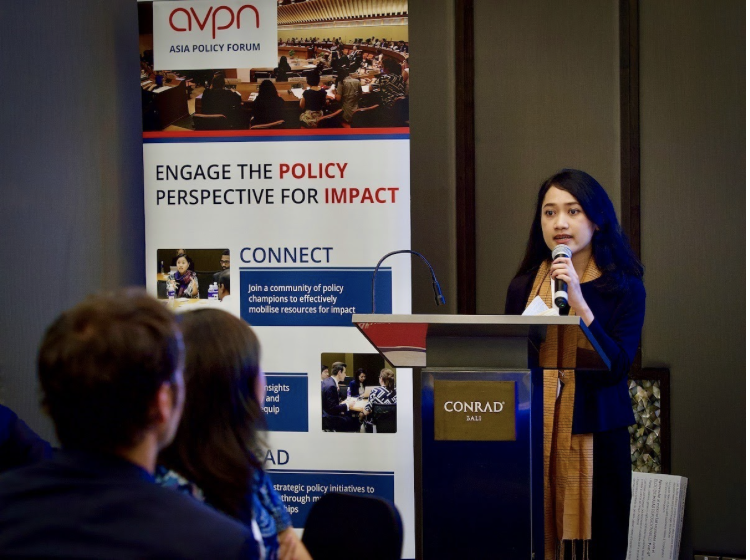On February 12-14th 2020, ANGIN Team (Benedikta Atika, Adirani Heraputeri, Margot Groot, Rininta Bella) attended the first AVPN Southeast Asia Summit held in Bali. With the theme of “Leveraging the Power of Networks”, AVPN brought hundreds of key players in the social investment, from philanthropists, corporations, impact investors, financial institutions and other enablers.
ANGIN, represented by Benedikta Atika (Impact Investment Lead), was invited to share our view about the Continuum of Capital for early-stage businesses in Indonesia. In the room full of policymakers and social investment players across Southeast Asia, we shared our key learnings drawn upon ANGIN experiences in the past 6 years in dealing with different types of entrepreneurs and investors. The session was hosted by Tristan Ace from British Council, inviting speakers with diverse perspectives in strengthening public-private engagement, including Trihadi Saptoadi (Tahija Foundation), Stephanie Arifin (PLUS), and Amalia Adininggar Widyasanti (BAPPENAS).
As AVPN’s research partner for a study on the Nutrition Funders Landscape in Indonesia, our team also supported the organization of a networking session, to discuss how to better catalyse capital for nutrition in Asia. The findings from this study will serve to inform activities in the lead up to the Nutrition4Growth Summit, to be held in Tokyo in December 2020.
Key Takeaways
We were glad to learn a lot from the best practices from the speakers and fellow delegates. Here are some key takeaways drawn upon the discussion during the 3-day summit:
Continuum of capital needs to be more inclusive
Continuum of capital is ideally helpful for social organizations, including entrepreneurs, to access capital they need to scale their organizations, thus scaling their impact. However, it is observed that some groups of entrepreneurs are unable to tap the next stage of capital because they are unfit to the capital providers’ criteria. Instead of relying on the entrepreneurs to meet the capital providers’ standard, capital providers should also be more inclusive in creating the funding products tailored to the entrepreneurs’ needs.
Blended finance
Discussion around blended finance has always been exciting. However, executing this public-private engagement remains challenging. Beyond the structure, it is highly important to align every stakeholders’ interests and objectives, ensuring that everyone is talking the same language.
How can impact measurement be translated into economic value?
Impact management and impact measurement have been widely discussed in this social investment space. However, some entrepreneurs still find it difficult to translate such impact metrics into economic value. For example, in convincing the capital providers to set more affordable interest rates or different schemes of capital disbursement.
Maximizing the value of social enterprises in Asia
Social Enterprise as a hybrid entity is often seen as a new frontier for development in Asia, the region where one-third of the world’s wealth is accumulated, but also remains home to two-thirds of the world’s poor. How can we best address the needs of this sector to live up to its full potential as a critical part of the solution? Multi-stakeholders effort is needed. Governments, investors, philanthropists and companies in Asia are demanded to translate interest into action and investment to contribute to the long-term success of the sector. Mainly needed investments are capital, time, and talent.





